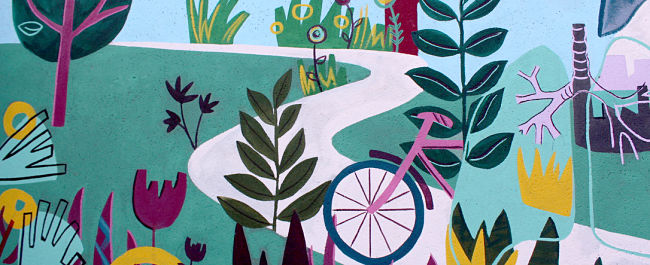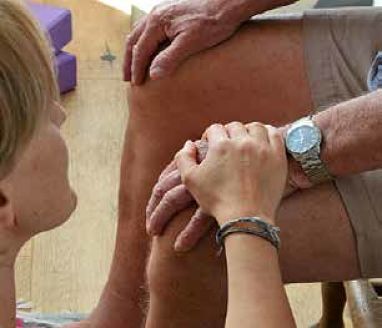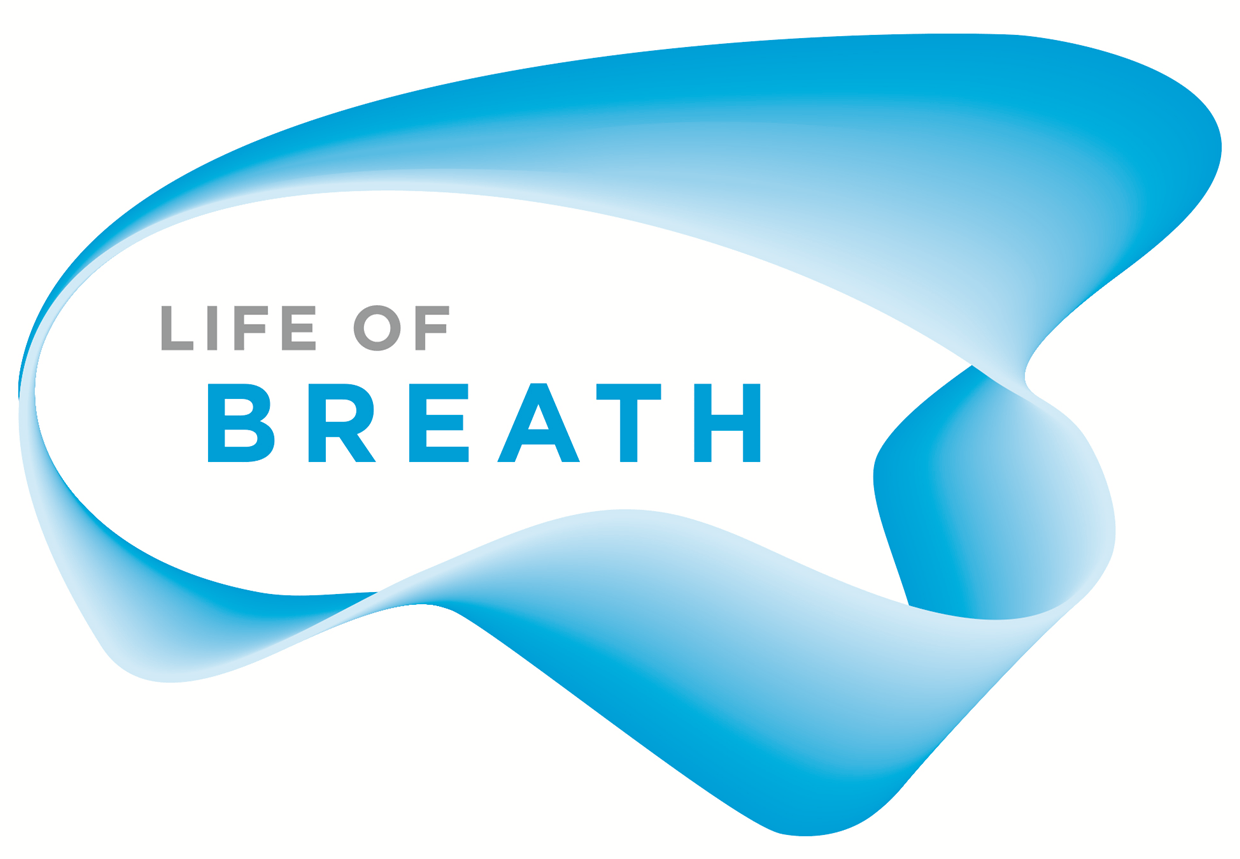More than a medical symptom: the need for holistic care of breathlessness

Chronic and pathological (refractory) breathlessness is debilitating for millions of people in the UK. Despite attempts to define breathlessness to capture its complex subjective nature (ATS statement 2012), it is often reduced to a simple medical symptom or physiological problem. However, breathlessness is a much broader experience, created by diverse physiological inputs and mediated by emotional state, beliefs and expectations (Faull et al. 2018).
About the research
People experience their breathlessness against a backdrop of previous experiences which shape their expectations. These expectations, in turn, colour their current experience. It is imperative that these aspects of breathlessness are identified and managed effectively, for individual health and wellbeing as well as to increase the cost-effectiveness of public services e.g. by reducing hospital admissions.
Treating breathlessness and supporting breathless patients cannot be limited to physiological and pharmacological interventions. It must consider how breathless persons’ lives become limited and how they increasingly associate breathlessness with negative thoughts and feelings (Carel 2018). Patients’ subjective experiences may be more debilitating and severe than the underlying disease causing the breathlessness.
This report outlines our findings, based on research done in medical anthropology, history, philosophy, medical humanities, arts and health, and palliative care research, and makes recommendations for healthcare professionals, policymakers, and government bodies concerned with health care.

Extending care to include mindfulness- and body-based approaches (e.g. yoga) can help those with breathlessness self-manage their symptoms. (Photo by Laura Burt)
A holistic approach to breathlessness: addressing cultural and societal factors
Life of Breath research reveals how cultural, philosophical, historical and social contexts impact on people’s experiences of breathlessness, which are embedded in particular beliefs about the body, personhood, illness, disability and stigma.
Key findings
Both healthcare professionals and those living with breathlessness may underestimate the complexities of perceiving breathlessness. Both tend to view breathlessness as a quantifiable physiological phenomenon.
Objective measurement of respiratory disability can be difficult and misleading, as it fails to consider the complexity and intersecting causes of impaired lung function.
Breathlessness is a sensation involving the senses, such as movement, touch and sound. Sensory perception is a cultural act as well as a physical act, which is highly subjective. For example, two patients with the same lung function can experience different breath-related distress.
Mindfulness- and body-based approaches appear to target affective and sensory perceptions of breathlessness.
Breathlessness- specific holistic services are lacking across the UK although some notable, evidence-based examples exist e.g. the Cambridge Breathlessness Intervention Service, which provides multidisciplinary support to patients and their caregivers and trains healthcare professionals (Booth et al. 2006, 2011).
Arts & health approaches and forum theatre methods can help change practice by raising awareness about breathlessness; they also help build community, understanding and an opportunity for participants to express personal experiences.
Policy recommendations
Changes to services
• An ideal breathlessness service would provide education and support to patients with breathlessness and their caregivers in ways that empower and develop their ability to think about breathlessness beyond the biomedical framework.
• Pulmonary rehabilitation is one of the most effective interventions available to people with chronic lung disease. We advocate funding to ensure access to this service across the UK.
• Pulmonary rehabilitation services could extend the time allocated (currently one hour) to exploring the emotional and attitudinal aspects of perceiving breathlessness, e.g. from a mindfulness-based perspective.
• Alternatively, those attending pulmonary rehabilitation could be referred onto a further programme exploring perceptions of breathlessness and training in more accurate awareness of internal sensations; this could include arts-based activities.
• Providers of pulmonary rehabilitation services should consider renaming them to avoid the stigmatising effect of ‘rehabilitation’ and the medicalised term ‘pulmonary’. Experts by experience should be involved in any renaming initiatives, to help avoid alienating people living with breathlessness from services (Oxley et al.).
Changes to education and training
• Healthcare training and education should integrate a biomedical understanding of breathlessness with an experiential view, seeing it as an experience akin to pain.
• NHS England and NHS Choice Guidelines should provide information on how breathlessness is linked to feelings and thoughts, as well as the importance of training in awareness of bodily sensations.
• GP group-based consultations may provide a useful forum for those living with breathlessness to explore stigma, self-limiting behaviours, fears and anxieties associated with breathlessness, as well as to be inspired by patients who live well with breathlessness (see also www.nhsalliance.org.)
• Questionnaires and training should be designed in a more culturally sensitive way, taking account of ethnicity, class and culture.

Breathlessness is a complex and subjective experience. (Illustration Jordan Collver)
Identifying palliative care needs for patients with advanced respiratory problems
Persistent refractory breathlessness in advanced illness is frightening and upsetting to patients and those around them. Holistic breathlessness support during end of life care is key to successful care.
Key findings
Breathlessness at end of life is common, difficult to manage medically, and causes distress to patients, families and staff (Farquhar et al. 2017).
Patients with advanced respiratory disease, such as chronic obstructive pulmonary disease (COPD), may experience a progressive decline in health with refractory breathlessness that becomes increasingly unresponsive to medical management. Not all such patients are able to access, or are fearful of accessing, pulmonary rehabilitation. Many become isolated and lack psycho-social-spiritual and rehabilitative support (Gardiner et al. 2010).
Group interventions delivered in palliative day care settings (such as mindful yoga) show promise in reducing isolation and supporting psycho-social-spiritual needs (Donesky- Cuenco et al. 2009).
Healthcare professionals delivering pulmonary rehabilitation welcome psycho-social-spiritual training to co-manage the anxiety and distress prevalent in breathless patients with advanced lung conditions, over and above functional outcomes (e.g. TANDEM study (Taylor et al. 2018)).
Patients with advanced disease are not routinely referred to palliative care, leaving a significant gap in care. Existing UK breathlessness services, such as the Cambridge service, show that by providing early, symptom-specific care, education and person-centred support, patients and their carers experience improved wellbeing, self-management skills and quality of life, with reduced burden on other services (Spathis et al. 2017).
Respiratory teams and generalist healthcare professionals need training to support holistic self-management and wellbeing for breathless patients, and to signpost, where appropriate, to timely specialist palliative care.
Policy recommendations
• The NHS should increase the number and availability of holistic breathlessness-specific services across the UK (like NHS Pain Management Programmes).
• Healthcare professionals should be equipped with the skills needed to assess the psycho-social-spiritual needs of breathless patients, improving confidence to discuss these issues with patients in primary care.
• Assessment criteria should enable timely referral to breathlessness services or to palliative care.
• Palliative care services should be extended to support patients dying from non-malignant conditions, with staff trained to holistically manage complex breathlessness in advanced disease and at end of life.
• Research into terminal breathlessness should be prioritised and funded.
Assessing respiratory disability: balancing objective measurement
The World Health Organization predicts that COPD (an umbrella term used to categorise respiratory illnesses including chronic bronchitis and emphysema) will be the third leading cause of death worldwide by 2030 (partly due to air pollution). The way we assess respiratory disability is therefore a pressing concern.
Spirometry has been used for assessment of health since the mid-nineteenth century and is useful for monitoring individual lung capacity over time. The spirometer is necessary for diagnosis of COPD; however, there are problems with its use in assessing respiratory disability. The spirometer uses proxy measures to estimate lung capacity.
Data which is made to ‘stand in’ as a proxy measurement may be particularly vulnerable to error or abuse. It also relies on the use of ‘race corrections’, which are neither clear nor standardized and are based on problematic historical ideas about racial
difference (Braun, 2016).
Key findings
• Objective measurement of respiratory disability can be discriminatory because of a lack of clarity about the way that racial reference classes are employed.
• Felt experiences like breathlessness do not lend themselves to easy quantification: medical measurement of breathlessness can be incongruent with extremely diverse and individual experiences.
• Recent neuroscience research has shown that our perception of the sensation of breathlessness is the same regardless of its cause (Faull et al. 2017).
Policy recommendations
• NICE guidelines on assessment measures should account for socioeconomic status and its effects on lung function.
• Balancing biomedical testing data with individual testimony concerning personal experiences of health will help to ensure accurate assessment.
• The disabled are normally experts on their own condition and needs, and this should be recognised in assessment practices.
• Psychological and physiological dimensions of breathlessness should be given equal attention.
• There is great potential benefit to the Department for Work and Pensions working with the Department of Health and Social Care and the NHS to develop a more holistic approach to capability assessment. Such an approach would prioritise the views of the person being assessed and consider their psychosocial experience.
• Government policy should focus less on employment and more on support for quality of life.
Policy Report 43: Nov 2018
Related briefings
How should health policy respond to the growing challenge of multimorbidity?
Increasing the duration of repeat prescriptions may save NHS money and improve care
Further information
The Life of Breath project is generously funded by the Wellcome Trust (grant number 103340)
Contact the researchers:
Professor Havi Carel: havi.carel@bristol.ac.uk
https://lifeofbreath.org/
References
Carel, H. 2018. Breathlessness: the rift between objective measurement and subjective experience. Lancet Respiratory Medicine, March 7. http://dx.doi.org/10.1016/
Oxley R, Harrison S, Rose A, Macnaughton J. The meaning of ‘pulmonary rehabilitation’ and its influence on engagement with individuals with chronic lung disease. Chronic Respiratory Disease (under review).
Malpass, A., Feder, G., & Dodd, J. 2018. Understanding changes in dyspnoea perception in obstructive lung disease after mindfulness training. BMJ Open Respiratory Research 5(1) e000309.




Authors
Havi Carel, Professor of Philosophy, University of Bristol; Jane Macnaughton, Professor of Medical Humanities, Durham University; Alice Malpass, NIHR Research Fellow, University of Bristol; Kate Binnie, Senior Research Associate, University of Bristol; Coreen McGuire, Postdoctoral Researcher in Medical History, University of Bristol; Gene Feder, Professor of primary care, University of Bristol; James W. Dodd, Consultant respiratory physician and honorary senior lecturer, Academic respiratory unit, Southmead Hospital Bristol; Jordan Collver, Project Administrator, University of Bristol; Elspeth Penny, 2BU Productions